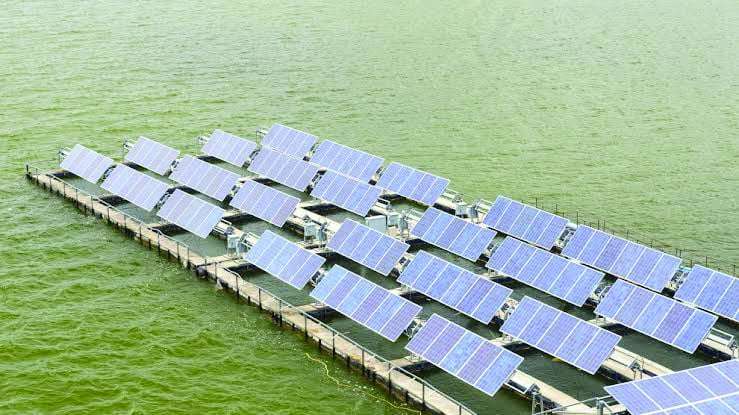Rapid Solarisation: A Path to Energy Security
|
Getting your Trinity Audio player ready...
|
Pakistan’s energy landscape is undergoing a profound transformation, primarily driven by the rapid expansion of solar energy. Solar power, once considered a niche sector, has now become a major player in the country’s energy strategy. In a remarkably short span of just two to three years, Pakistan has evolved from being a minor consumer of solar energy to one of the top global markets for solar energy. This growth is largely fueled by a combination of private sector enthusiasm, government policy support, and dramatic technological advancements in solar energy technology.
Solar Energy: A Key to Addressing Pakistan’s Energy Woes
The energy crisis in Pakistan has been a persistent challenge. Overreliance on expensive and polluting energy sources, such as fossil fuels, has not only hindered economic development but also led to severe financial strain on the country. Solar energy has emerged as a viable solution to this problem, offering an affordable and sustainable source of power. According to the World Economic Forum, Pakistan became the third-largest importer of Chinese solar panels in the first half of 2023, purchasing 13 gigawatts (GW) of capacity. As of 2023, over 30% of Pakistan’s total power capacity, which stood at 46GW, was derived from solar energy.
The Role of the Government in Pakistan’s Solar Energy Push
Unlike past energy policies, which often relied on top-down strategies and failed to meet the country’s long-term needs, the current solar energy boom is a result of bottom-up initiatives. The government has played a limited but crucial role in facilitating the solar revolution by removing the 17% sales tax on solar panel imports in 2022 and implementing net metering policies. These policies allow consumers to sell surplus energy back to the grid at lower rates, thereby encouraging the adoption of solar energy.
However, some policymakers, especially those within electricity distribution companies, have expressed concerns over the growing reliance on solar energy, fearing that it may reduce their revenues. In response, there have been discussions about withdrawing incentives for solar power buy-back. Despite this, the momentum towards solar energy is unlikely to slow down significantly.
Challenges in Solar Energy Expansion
While solar energy is offering significant benefits, its rapid adoption is not without challenges. One of the major hurdles is grid integration. As more households and businesses opt for solar energy, electricity distribution companies are facing difficulties in managing the increasing share of solar power in the grid. The government and energy regulators must address these grid integration challenges to ensure that solar energy can continue to grow in a reliable and sustainable manner.
Furthermore, the country must explore ways to extend electrification to other sectors, particularly transport. The electrification of transportation is a crucial step in reducing Pakistan’s dependence on imported fossil fuels and mitigating the country’s growing pollution crisis.
Economic Competitiveness and Export Growth
Solarisation in Pakistan is not only addressing energy challenges but also has the potential to boost the country’s economic competitiveness on the global stage. As global markets, particularly the European Union, begin to impose stricter environmental standards, Pakistan’s transition to solar energy is increasingly seen as a way to avoid penalties associated with carbon emissions.
The EU’s Carbon Border Adjustment Mechanism (CBAM) is set to impose financial penalties on imports based on the carbon emissions embedded in their production, starting in 2027. For Pakistan’s exporters, shifting from fossil fuels to solar energy could mitigate these penalties, ensuring that they remain competitive in the global market. This shift could also attract foreign investment and create new job opportunities in the renewable energy sector.
The Future of Solar and Transport Electrification
The momentum towards solar energy can be complemented by a similar strategy in the transport sector. Pakistan’s transport policies, much like its energy policies, have historically been top-down initiatives. The country has faced stagnation in the automotive sector, with limited exports and a lack of significant diversification. In contrast, countries like Turkey, Indonesia, and India have used their automobile industries to secure a substantial share of global markets.
By implementing policies that encourage the import of electric vehicles (EVs) through free trade agreements, such as the Pakistan-China Free Trade Agreement, Pakistan can transform its transport sector. This would reduce the country’s dependence on fossil fuels, improve air quality in urban areas, and help the country meet its climate goals. Furthermore, Pakistan has set ambitious targets for electric vehicle adoption, aiming for 30% of its fleet to be electric by 2030 and 90% by 2040.
Economic Benefits Beyond Energy: Jobs and Investment Opportunities
Solar energy is driving job creation in Pakistan, with thousands of new opportunities emerging in the solar installation and maintenance sectors. The increase in solar energy use is also attracting foreign direct investment, as international companies seek to tap into the growing renewable energy market in Pakistan. With continued investments in solar energy and related industries, Pakistan can position itself as a leader in the renewable energy sector, boosting its economic growth and energy security.
The Way Forward: A Strategic Approach to Solarisation and Transport Electrification
Pakistan is at a critical juncture in its energy transition. The country must adopt complementary policies to ensure the continued success of solarisation and extend this momentum to other sectors, particularly transport. By taking a strategic and forward-thinking approach, Pakistan can turn its energy crisis into an opportunity for growth, competitiveness, and environmental leadership.
Conclusion: Harnessing Solar Power for a Sustainable Future
Rapid solarisation offers Pakistan an unprecedented opportunity to address its energy challenges, enhance its economic competitiveness, and contribute to global sustainability efforts. However, this progress must be coupled with effective policies that address grid integration, encourage the electrification of transport, and foster long-term energy security. With the right policies in place, solar energy can become the cornerstone of Pakistan’s energy future, driving economic growth, job creation, and environmental sustainability.
FAQs
1. What is the current status of solar energy in Pakistan?
Solar energy is growing rapidly in Pakistan, with the country emerging as one of the top global markets for solar panels. As of 2023, over 30% of Pakistan’s total power capacity comes from solar energy, and the country has become the third-largest importer of Chinese solar panels.
2. How does solar energy help reduce Pakistan’s reliance on fossil fuels?
Solar energy helps reduce Pakistan’s dependence on fossil fuels by providing a clean and affordable alternative for power generation. This shift also reduces the need for costly energy imports and mitigates the environmental impact of fossil fuel consumption.
3. What challenges does Pakistan face in integrating solar energy into its grid?
The main challenge is grid integration. As more households and businesses adopt solar power, electricity distribution companies are facing difficulties in managing the increased share of solar energy in the grid.
4. How can solar energy boost Pakistan’s economic competitiveness?
By transitioning to solar energy, Pakistan can reduce its carbon emissions, avoid environmental penalties, and attract foreign investment. Additionally, solar energy can create new jobs and increase export competitiveness, especially in markets with strict environmental standards.
5. What role can electric vehicles (EVs) play in Pakistan’s energy transition?
Electric vehicles can significantly reduce Pakistan’s dependence on imported fossil fuels, lower emissions, and help combat urban air pollution. Policies that encourage the import of EVs and promote the electrification of transport are crucial for achieving long-term sustainability goals.
SEE ALSO:
https://skipper.pk/2024/12/09/brics-currency-plan-vs-trumps-tariff-threat/




